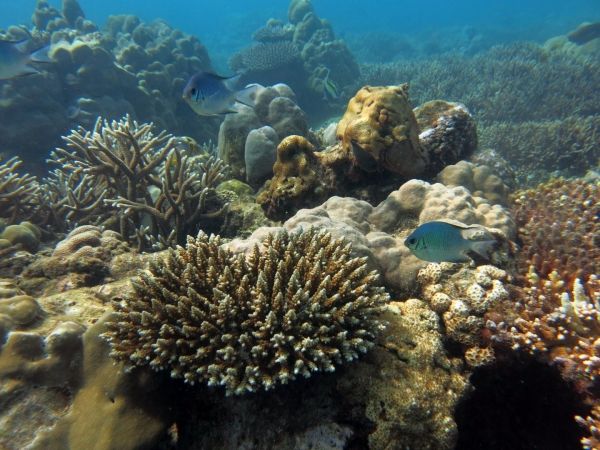Climate change and warming seas are transforming tropical coral reefs and undoing decades of knowledge about how to protect these delicate and vital ecosystems.
Many of the world’s coral reefs are seeing biodiversity plunge in the face of repeated coral bleaching events.
Protected areas, called marine reserves, are an effective and long-established tool in the conservation toolbox. Marine reserves have been used for decades to enhance biodiversity and fish biomass by preventing damage and over-exploitation by fishing.
However, a new study highlights that tropical coral reef marine reserves can offer little defence in the face of climate change impacts. And the changes that are being observed will force scientists, conservationists and reserve managers to rethink the role these protected areas can bring.
Read more at: Lancaster University
A recovering reef in Seychelles. (Photo Credit: Nick Graham, Lancaster University)


